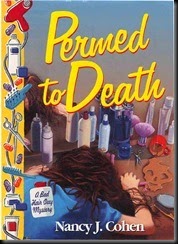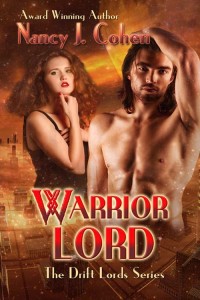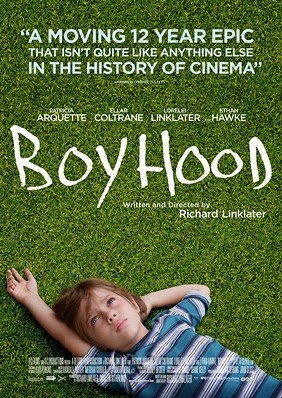Yearly Archives: 2014
Call Me Ishmael. Or Call Me Easy.
Reader Friday: Where Did You Find That Book?
First page critique: Oh, the places you’ll go! Or, not.
Hi Guys! Today we have a first-page submission from another brave writer. This one is called ALICE IN REAL LIFE.
My comments follow.
***
Life is funny . . . in a brutal kind of way.
One minute you’re a youngster surrounded by grown-ups shoving sunshine up your ass about your bright, shiny future and the next, you’re alone in a crappy apartment, pushing thirty and taking stock of your inadequate underwear supply while packing to leave the country.
Or, is this just me?
Come on, I can’t be alone here. As a kid, you must’ve heard crap like, “the world is your oyster”, whatever that means. And I know I’m not the only one given this inspirational little book by a well-meaning grown-up at high school graduation: “Oh the Places You’ll Go!” by Dr. Seuss. Sound familiar? At one point, the main character enjoys a magical balloon ride, ascending through marvelous new experiences in a whimsical world. As if the only place to go is up. It’s cute. It’s promising. It’s bullshit.
Maybe parents hand this out to see the hope in their kids’ eyes that was lost when they found out the truth about Santa. Or, maybe they’re sadistic assholes that just want to tell one more lie. They know the ride into adulthood will be much more like a roller coaster. Not the Disneyland kind. The questionable, County Fair-taking-your-life-into-your-own-hands kind.
Sure, Dr. Seuss’s character hits a couple of bumps along the way, but my version would have even more reality mixed into those colorful pages. I’d still call it “Oh the Places You’ll Go”, but without the exclamation point and with a sad little Who on the cover pinching the top of his nose and shaking his head. Still whimsical, but with a hint of shame. Chapter 1, “Vomiting in a men’s room toilet while a stranger holds your hair”. Chapter 2, “The choice between paying rent and eating”. Chapter 3, “Your boyfriend’s selling drugs out of your apartment”. But, wait – there’s more! Chapter 5, “The engagement’s off”. Then, there’s the part I’m on now, Chapter 6, “Your mom battles cancer . . . and loses”.
Okay, I can see how this sounds like a great big bummer and book sales would not be good. Dr. Seuss wasn’t stupid. And Mom wasn’t sadistic for giving me hope, but, let’s cut the crap at graduation. Because I’ll tell you, the only time the world was full of magical shapes and whimsical colors was during Chapter 4, “That regrettable mushroom incident”.
***
My comments:
“Doctor Bombay! Doctor Bombay! Emergency! Come right away!“
Wow. Talk about having a voice. Reading this first page, I feel like I just got a two a.m. call from a close friend in crisis. The kind of call which would cause me to knock the sleep out of my eyes, throw on some clothes, and trundle across greater LA, braving freeway traffic to see how I could help sort things out.
My feeling is that this section sounds like the first page of an incredibly interesting memoir. I want to get to know this narrator. What happened to her, and why? This page makes me want to go on the journey with her.
What say you, TKZers? Chime in!
The First Conundrum
Often people will start reading a series with book number one. “You can begin with any story,” I’ll tell folks interested in reading my Bad Hair Day series. But they insist on starting at the beginning. “That’s fine,” I’ll say, but is it really?
I am thinking how that first book is not the best example of my writing skills today. How long ago was it published? In 1999. And the book had probably been in production for a year before. So that means I wrote it sixteen or more years ago. Don’t you think my writing has improved since then? Yet here is this potential fan evaluating my entire series based on that one book. You’d hope she would cut me some slack.
At least I got the rights back to my early futuristics. I revised those stories before making them available in ebook formats. No problems there.
I do not have the same opportunity with my mysteries. But even if I did, would it be a good use of my time to revise all of my earlier stories? Or is it best to leave them in their pristine state, an example of my earlier writing style? If so, let’s hope that the readers out there coming to my series for the first time will approve and understand.
Sometimes the opposite is true. A writer’s early works are his best efforts, before he gets rushed to meet deadlines or to quicken production. In such cases, the later writing might suffer. I’ve seen this happen with some favorite authors.
So what do you think? If you want to read a new series, do you begin with book one or with the latest title?
<><><>
What This Old Dog LearnedFrom Teaching New Writers
You can, it seems, teach an old dog new tricks. I don’t mean the one above. That’s my dog Bailey. She’s as smart as a whip, but at fourteen, she’s not about to let me balance a Wishbone on her nose. I am talking about myself here. Let me first stipulate that I am an “old dog” (way past AARP induction age and been published now since 1985). Yet I am definitely still learning new tricks.
This point was driven home to me last week when my sister Kelly and I were up in Michigan teaching a two-day fiction writing workshop at Saturn Booksellers. It was pretty intense and we worked our charges hard, giving them Powerpoints on the twin pillars of plot and character, and on the finer points of transitions, pacing, theme and voice, rewriting, and what “show vs tell” really means.
But we also forced them to actually write, giving them quick exercises on a host of topics. We would show them a photograph and give them the opening line. Then they had five minutes to write to the assignment. I was surprised at the quality of the short pieces they produced. I think they were, too.
Almost all of them, they admitted, felt bogged down and somewhat defeated by their works in progress — all for different reasons. But there was something liberating about doing those short-burst exercises that recharged their confidence and got their mental muscles moving again. (For some reason, this photo below, for the dialogue exercise, really inspired some great offbeat writing. Go figure!)
We also offered to critique the first ten pages of their manuscripts. There was some good stuff in their submissions and the mistakes tended to be the usual ones of craft that we here at The Kill Zone talk about all the time. But it was the big-picture issues that I found myself thinking about afterwards. Because even after ten years of teaching, after publishing twenty novels, a novella and a bunch of short stories, this old dog is still learning — from my students.
Here are my top big picture points from our Michigan workshop.
Chose your entry point carefully
Where do you begin your story? This is, to my mind, maybe the most important choice we make as writers and one I struggled with mightily on my WIP. I changed my opening five times before I finally hit upon the right moment to begin my tale. It’s like those astronauts in “Apollo 13”: You come in too late you burn up. If you come in too shallow you skim off the atmosphere and fly off into space. Many folks pick a point too early and the reader gets bored waiting for something to happen. This is why prologues usually fail; it’s just the writer clearing his throat or doing a backstory dump. Here’s what agent Dan Lazar hates to see: “Characters that are moving around doing little things, but essentially nothing. Washing dishes and thinking, staring out the window and thinking, tying shoes, thinking.” But if you come in too late, you create confusion for the reader aka “coming out of a coma syndrome.” (ie where am I? Who is that? What the heck is going on?”)
Things to consider when picking your entry point: Early on, tell us who the protag is and make us care about her. Create a conflict for the protag in the opening pages. Establish the stakes. And make the opening scene compelling enough that we must read on. But don’t get too clever. Here’s Dan Lazar again: “A cheesy hook drives me nuts. They say ‘Open with a hook!’ to grab the reader. That’s true, but there’s a fine line between an intriguing hook and one that’s just silly. An example of a silly hook would be opening with a line of overtly sexual dialogue.”
Don’t try too hard
Nothing’s more cringe-inducing than a writer who’s swinging for the fences and whiffing. Whether it’s lame humor, groddy sex scenes, overly didactic themes, ten-dollar vocabulary, or cutesy attempts to be different (“Look, Ma! No punctuation!”), writing that calls attention to itself is just…bad writing. Yes, we all admire inventive writing, but there’s only one George Saunders. You are not him. Neither am I, alas. Remember what Nathaniel Hawthorne said: “Easy reading is damn hard writing.” Just tell a compelling story about characters we care about. Get out of the way of your story. This is something, my friends, that I need to have tattooed on my forehead.
Read. Read. Read some more
Our students, who ranged from a 17-year-old writing vampire YA to a great-grandfather writing a WWII novel, were all pretty good on this account. But we stressed to them that they have to read with an analytical eye, dissecting how other writers spin their magic. I have gotten lazy on this account lately, telling myself that I just don’t have time to read. But up in the Michigan woods, I read two terrific books — Odd Thomas by Dean Koontz and The Blue Hour by T. Jefferson Parker. From Koontz I re-learned the importance of rich characterization and how to handle an unreliable narrator. (Which I am grappling with). From Parker, I got a great lesson in how to handle dual protagonists. If you want to be a writer, you must first be a reader.
Don’t be afraid
One of the hardest things for our students was exposing themselves and their writing. This is why we made them write in class and share. Fear is a common affliction among writers. I’m not immune; I’m afraid I don’t have the chops to pull off my WIP story. For the yet-unpublished, the fears are more basic. They are afraid of scrutiny, criticism, ridicule, rejection — you fill in the blank. I know folks who have slaved for years over their books (aka The Thing That Has Eaten Up Ten Years of my Life) who have never worked up the courage to show it to anyone. Yes, we get personal gratification from the process. But the purpose of writing is communication. You have to put it — and yourself — out there.
Make your story compel someone to say, “Wow, that’s exactly how I feel.” If you do that, well, then you can relax a little. Because you’ll know then that you really are a writer. Peace out. Woof.
25 Tips for Writing a Winning Short Story
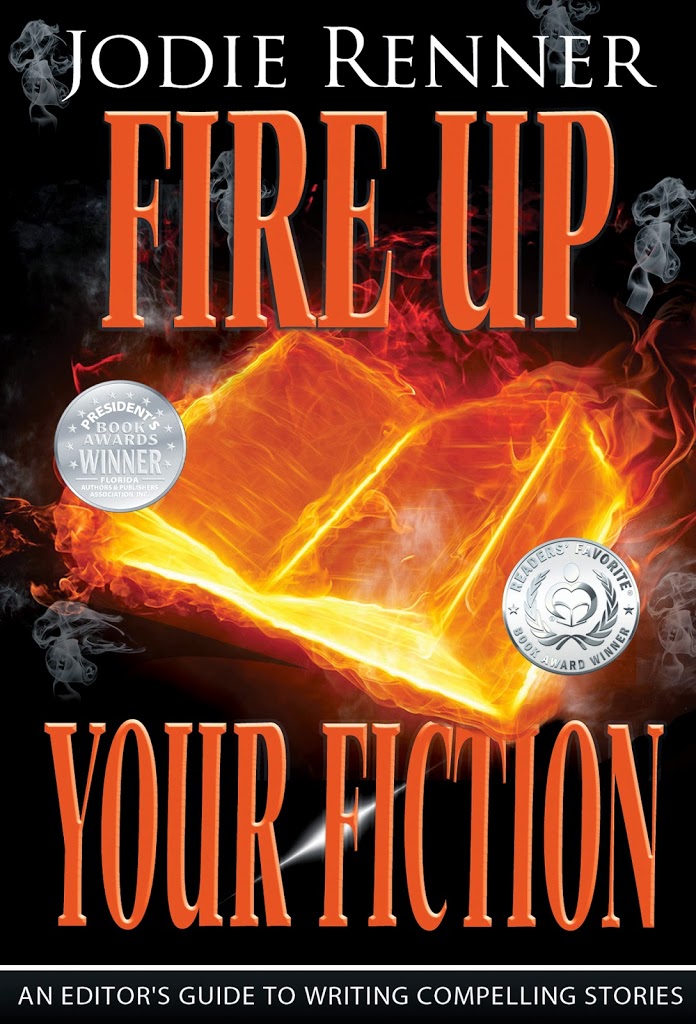 Jodie Renner, editor & author, @JodieRennerEd
Jodie Renner, editor & author, @JodieRennerEd
Writing short stories is a great way to test the waters of fiction without making a huge commitment, or to experiment with different genres, characters, settings, and voices.
And due to the rise in e-books and e-magazines, length is no longer an issue for publication, so there’s a growing market for short fiction. You can submit your short stories to anthologies, magazines, and contests, or publish a collection of three or four of your stories yourself in a short anthology. Or even one really good story, and price it at 99 cents. You can also get together with other authors in your genre and each contribute a story for an anthology, as did Kill Zone authors in 2010, with Fresh Kills, Tales from The Kill Zone. Time for another collection, I’d say, wouldn’t you? (Nudge, nudge.)
In fact, it’s a good idea to try to publish a few high-quality, well-edited short stories between novels to help with discoverability and growing a fan base.
Also, today’s busy readers (especially the young ones) have more distractions and temptations for their time, therefore shorter attention spans, so a short story is a nice escapism-byte for increasing numbers of people, I think.
I’ve judged short stories for several contests and anthologies, including for Writer’s Digest, and I’ve come up with some tips for writing a compelling short story that is worthy of publishing or submitting to contests, magazines, and anthologies. Of course, these are only guidelines—like any good cook with a recipe, you’ll tweak them to suit your own vision, goal, and story idea.
PLANNING STAGE:
1. Keep the story tight. Unlike a novel or even a novella, a short story is about just a small slice of life, with one story thread and one theme. Don’t get too ambitious. It’s best to limit it to one main character plus a few supporting characters, one main conflict, one geographical location, and a brief time frame, like a few weeks maximum—better yet, a few days, or even hours or minutes.
2. Create a complex, charismatic main character, one readers will care about. Your protagonist should be multi-dimensional and at least somewhat sympathetic, so readers can relate to him and start bonding with him right away. He should be charismatic, with plenty of personality, but give him a human side, with some inner conflict and vulnerability, so readers identify with him and start worrying about him immediately. If readers don’t care about your character, they also won’t care about what happens to him.
3. Give your protagonist a burning desire. What does she want more than anything? This is the basis for your story goal, the driving force of your story.
4. Decide what your character is most afraid of. What does your hero regret most? What is his biggest fear? What is he most afraid might happen? Give him some baggage and secrets.
5. Devise a critical story problem/conflict. Create a main conflict or challenge for your protagonist. Put her in hot water right away, on the first page, so the readers start worrying about her early on. No conflict = no story. The conflict can be internal, external, or interpersonal, or all three, against one’s own demons, other people, circumstances, or nature.
6. Develop a unique “voice” for this story by first getting to know your character really well. A good way is to journal in his voice. Pretend you are the character, writing in his secret diary, expressing his hopes and fears and venting his frustrations. Just let the ideas flow, in his point of view, using his words and expressions. Then take it a step further and carry that voice you’ve developed throughout the whole story, even to the narration and description, which are really the character’s thoughts, perceptions, observations and reactions. (In a novel, the voice will of course change in any chapters in other characters’ viewpoints.)
7. Create an antagonist and a few interesting supporting characters. Give each of your characters a distinct personality, with their own agenda, hopes, accomplishments, fears, insecurities and secrets, and add some individual quirks to bring each of them to life. Supporting and minor characters should be quite different from your protagonist, for contrast.
8. To enter and win contests, make your character and story unique and memorable. Try to jolt or awe the readers somehow, with a unique, charismatic, even quirky or weird character; a unique premise or situation; and an unexpected, even shocking revelation and plot twist.
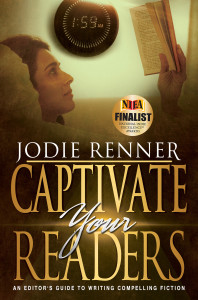 9. Experiment – take a chance. Short stories can be edgier, darker, or more intense because they’re short, and readers can tolerate something a little more extreme for a limited time.
9. Experiment – take a chance. Short stories can be edgier, darker, or more intense because they’re short, and readers can tolerate something a little more extreme for a limited time.
WRITING STAGE:
10. Start right out in the head of your main character. It’s best to use his name right in the first sentence to establish him as the point-of-view character, the one readers are supposed to identify with and root for. And let readers know really soon his rough age and role in the story world.
11. Put your character in motion right away. Having her interacting with someone else is usually best—much more dynamic than starting with a character alone, musing. Also, best not to start with your character just waking up or in an everyday situation or on the way to somewhere. That’s too much of a slow lead-up for a short story—or any compelling story, for that matter.
12. Use close point of view. Get up close and personal with your main character and tell the whole story from his point of view. Show his thoughts, feelings, reactions, and physical sensations. And don’t show anyone else’s thoughts or inner reactions. You don’t have time or space to get into anyone else’s viewpoint in a short story. Even the narration is your POV character’s thoughts and observations. Don’t intrude as the author to describe or explain anything to the readers in neutral language.
13. Situate the reader early on. Don’t forget the 4 W’s: who, what, where, when. Establish your setting (time and place) within the first few paragraphs, to situate your reader and avoid confusion. But as mentioned above, avoid starting with a great long descriptive passage.
14. Jump right in with some tension in the first paragraphs. There’s no room in a short story for a long, meandering lead-up to the main problem, or an extended description of the setting or the characters and their background. Disrupt the main character’s life in some way on the first page. As Kurt Vonnegut advises, start as close to the end as possible.
15. Show, Don’t Tell. Don’t use narration to tell your readers what happened—put them right in the middle of the scene, with lots of dialogue and action and reactions, in real time. And skip past transitional times and unimportant moments. Just use a few words to go from one time/place to another, unless something important happens during the transition.
16. Your character needs to react! Show your character’s emotional and physical reactions, both inner and outer. And to bring the character and scene to life on the page, evoke as many of the five senses as possible or appropriate, not just sight and hearing.
17. Every page needs tension of some sort. It might be overt, like an argument, or subtle, like inner resentments, disagreements, questioning, or anxiety. If everybody is in agreement, shake things up a little.
18. Dialogue in fiction is like real conversation on steroids. Skip the yadda-yadda, blah-blah, and add spark and tension to all your dialogue. And make the characters’ words and expressions sound as natural and authentic as you can. Each character should speak differently, and not like the author. Read your dialogue out loud or role-play with a friend to make sure it sounds real and moves along at a good clip.
19. Build the conflict to a riveting climax. Keep putting your protagonist in more hot water until the big “battle,” showdown, or struggle—whether it’s physical, psychological, or interpersonal.
20. Go out with a bang. Don’t stretch out the conclusion – tie it up pretty quickly. Like your first paragraph, your final paragraph needs to be memorable, and also satisfying to the readers. Try to create a surprise twist at the end – but of course it needs to make sense, given all the other details of the story.
21. Provide some reader satisfaction at the end. It’s not necessary to tie everything up in a neat bow, but do give your reader some sense of resolution, some payout for their investment of time and effort in your story. As in novels, most readers want the character they’ve been rooting for all along to resolve at least some of their problems. But be sure the protagonist they’ve been identifying with succeeds through their own courage, determination, and resourcefulness, not through coincidence, luck, or a rescue by someone else.
REVISION STAGE:
22. Hook ’em in right away. Now that you’ve got your whole story down, go back and grab the readers with an opening that zings. Write and rewrite your first line, opening paragraph, and first page. They need to be as gripping and as intriguing as you can make them, in order to compel the readers to read the rest of the story. Your first sentence and paragraph should arouse curiosity and raise questions that demand to be answered.
23. Cut to the chase! The short story requires discipline and editing. Trim down any long, convoluted sentences to reveal the essentials. Less is more, so make every word count. If a sentence or line of dialogue doesn’t advance the plot, add intrigue, or develop a character, take it out.
Also, use strong, evocative, specific nouns and verbs and cut back on supporting adjectives and adverbs. For example, instead of saying “He walked heavily” say “He trudged.” Or instead of “She walked quietly into the room,” say “She tiptoed…”
24. Make every element and every image count. Every element you insert in the story should have some significance or some relevance later. If it doesn’t, take it out. You have no room for filler or extraneous details in a compelling short story. In fact, try to make all descriptions do double duty. Rather than listing their physical attributes and what they’re wearing, your description of a character should reveal their personality, their mood, their intentions, and their effect on those around them, and also the personality and attitude of the character who is observing them.
25. Pay attention to word count and other guidelines. Short stories are generally between 500 and 7,500 words long, with the most popular length around 2,500 to 4,000 words. If you want to submit your short story to a website, magazine or contest, be sure to read their guidelines as to length, genre, language, etc. Also, for your own protection, do read the fine print to avoid giving away all rights to your story.
For some great insights on creating a compelling short story, see James Scott Bell’s post here on TKZ, How to Write a Short Story. And check out Anne R. Allen’s great posts on the subject, such as “Why You Should be Writing Short Fiction.” Also, if you’re fairly new at writing short stories and would like more guidance, see my recent post, Some Quick, Basic Tips for Writing a Riveting Short Story. (Click on the titles.)
Do you have any suggestions to add to this list?
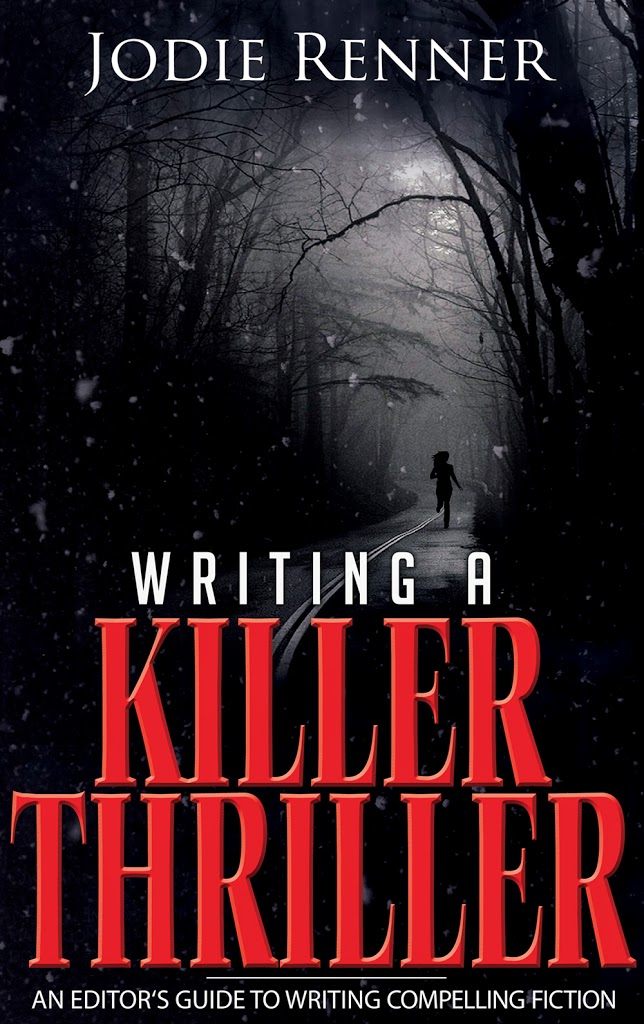
A Horrible Thing I Saw The Other Day
Summer Movies



